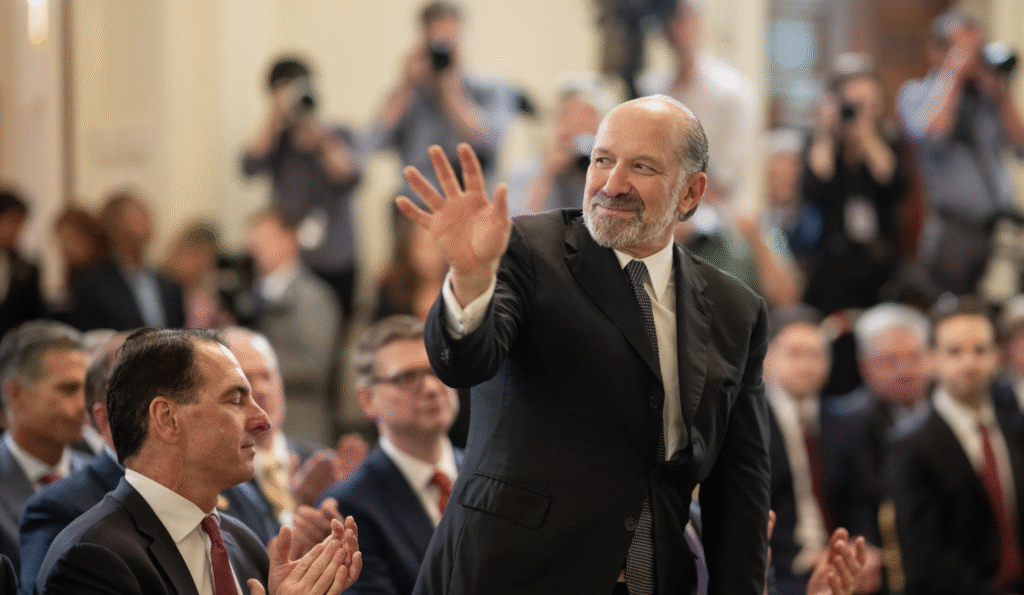At InSight Financial Planners, we’re proud to be one of the fastest-growing independent financial planning firms in Boulder, helping families, business owners, and professionals navigate big shifts like the One Big Beautiful Bill Act. Whether it’s understanding the new student loan rules, optimizing business tax strategies, or building competitive employer benefits, our Boulder-based team specializes in turning complex legislation like the OBBB into clear, actionable plans for our clients and partners.
After years of patchwork fixes, Washington finally drew up a bill that almost everyone seems to hate in some part. The One Big Beautiful Bill Act, better known as OBBB, passed in 2025 and brought sweeping changes to loans, taxes, and employee benefits. If the last five years felt like a rollercoaster of relief programs, court cases, and temporary tax rules, OBBBA is the moment the ride slows down and the rules settle in – for now.
And here’s the catch: stability won’t mean simplicity.
How We Got Here
Think back to 2020. At the height of the pandemic, the government pressed pause on federal student loan payments, froze interest, and rolled out emergency tax relief. Families leaned on temporary forgiveness measures, and businesses made decisions knowing many tax provisions from the 2017 Tax Cuts and Jobs Act (TCJA) were set to expire.
In short, everything felt uncertain. Borrowers didn’t know when payments would restart. Businesses didn’t know which deductions they could rely on. And employers weren’t sure which benefit programs were worth investing in if they might disappear a year later.
OBBB was written to end that uncertainty and add some new uncertainties.
What OBBBA Actually Does
Instead of temporary stopgaps, OBBB reshapes the playing field for the next decade:
- For families and students: Federal borrowing is more limited. Parent PLUS loans now have caps, graduate PLUS loans are eliminated, and repayment plans are streamlined into just a few options. The popular but temporary SAVE plan is gone, replaced by a new income-driven plan called RAP.
- For businesses: Several tax breaks from the TCJA are made permanent—like bonus depreciation and the 20% QBI deduction—while green energy incentives from the Inflation Reduction Act are rolled back. There are also new rules for R&D expensing, interest deductions, and reporting.
- For employers: Benefit programs get a major overhaul. Childcare credits are expanded, paid family leave credits are broadened, dependent care FSAs will increase starting in 2026, and student loan repayment benefits are now a permanent, tax-free option.
Why This Matters Now
The big difference between OBBB and the last five years is this: the rules are no longer temporary. Families, businesses, and employers can’t wait for another extension, waiver, or executive order to change things. The new framework is here, and it’s going to guide financial decisions for years to come.
That means now is the time to:
- Rethink college funding strategies as federal loan options shrink.
- Reevaluate business tax planning with permanent depreciation and deduction rules in place.
- Update benefits packages to stay competitive in attracting and retaining talent.
OBBB closes the chapter on temporary relief and opens a new one on long-term planning. For advisors, employers, and business owners, the opportunity is to get ahead of the curve—not just reacting to changes, but building strategies that fit under the new, permanent rules.
Deeper Overviews of the Elements in the Bill
In the posts that follow, we’ll dig deeper into each area of OBBBA and what it means for families, businesses, and employers:
- Student Loans & Borrowing
- New borrowing caps for undergrads, parents, and grad students
- The shift to the Repayment Assistance Plan (RAP) and updated standard repayment rules
- Public Service Loan Forgiveness (PSLF) updates, risks, and planning considerations
- Key deadlines borrowers and advisors need to watch
- Business Tax Planning
- Extended provisions: bonus depreciation, Section 179, interest deductibility (163j), and QBI permanence
- Updates to R&E expensing rules and retroactive planning opportunities
- Changes to Opportunity Zones, QSBS expansion, and 1099 reporting
- Green credit rollbacks and their impact on future planning
- Employer Benefits & Workforce Strategy
- Boosted childcare credit for recruitment and retention
- Expanded Paid Family & Medical Leave (PFML) credit
- Broader 529 plan usage for vocational and career pathways
- Increased Dependent Care HSA limits starting in 2026
- Student loan repayment assistance made permanent
- Deadlines & Timeline
- Key transition points between 2025 and 2028 for student loans, FSAs, R&E, PFML, and more
- What families, business owners, and employers must do now vs. what can wait
- The Big Picture
- Why stability under OBBBA comes with new complexity
- Action steps for families, employers, and business owners
- Why proactive planning matters more than ever




